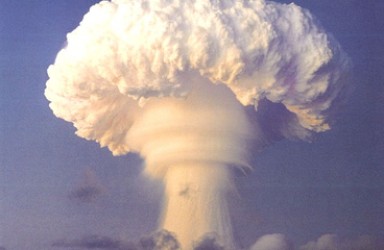World Risk Society and the Response to Terrorism
This paper will analyse how the concepts in Ulrich Beck’s Risk Society are influencing the War on Terror. Moreover, it will examine their practical enforcement, the way in which they pose serious threats to the international law system and how this contributes to the shaping a new domestic order in those states where they have being applied.
Deconstructing Dershowitz and his Torture Warrants
Dershowitz does not challenge the general illegality of torture. He argues, however, that all states (whether they be authoritarian or democratic) practice torture extralegally; he considers it to be a lesser of evils to legalise torture and control it rather than allow it to go unchecked and under the radar. This paper intends to invalidate Dershowitz’s argument.
Of Food Aid and Altruism – The Human Security Paradigm in Theory and Practice
Fifteen years after its first official promulgation, the human security paradigm requires analysis and evaluation, particularly in respect to its implications for the politics of international food aid.
Separate but (Un)Equal: Gender Segregated Bus Lines of Jerusalem
There is a tendency to equate the metaphor of travel and mobility with emancipation and the ability to move freely between cultures or continents. This work examines the implications of gender segregation in Ultra Orthodox communities of Jerusalem, by looking more closely at women’s experiences of the journeys made (both actual and allegorical) between the public and private spheres.
The Rwandan Genocide: The Guilty Bystanders
Each time genocide occurs, the world cries out ‘never again’. So why does no one stop these atrocities once they begin? Why are they simply ignored until they “resolve” themselves? This essay will be seeking to answer why the humanitarian intervention failed to prevent the genocide in Rwanda. It will focus on three main possible reasons why the intervention failed.
What are the Challenges to Nuclear Deterrence in the Second Nuclear Age?
This first introduces nuclear deterrence during the Cold War before considering nuclear proliferation and nuclear deterrence more broadly. It then examines state methods of responding to transnational terrorism, and finally explores further issues in contemporary international security challenging the centrality of deterrence in the Second Nuclear Age.
In the Post-9/11 Era is “The Responsibility to Protect” Irrelevant?
The responsibility to protect individuals from violations of their human rights around the world has been a movement increasing in intensity since the end of the Cold War. Since 9/11, the responsibility to protect has perished, and its corpse is now being used as a disguise for self-interest and self-security
Is the War on Terror Transforming Contemporary Politics?
The War on Terror has changed the world of international politics greatly. Old traditions and customs such as the respect for state sovereignty and the formal equality of states have been shaken. Humanitarian intervention and concerns for human security have been forced into the background, and the human rights and liberty of citizens of all nations are being threatened by the War on Terror.
Shell and Society: Securing the Niger Delta?
Transnational Oil Companies struggle to operate in the face of widespread anti-oil protests and civil conflict in the Niger Delta. Shell, in particular, has faced considerable security challenges since the emergence of an active civil society in the early 1990s – most notably manifested by MOSOP. The brutal repression of that group proved ultimately counterproductive and Shell now aims to build a security-development nexus in partnership with local people. However, the policy is based on a paradox.
What is the Relationship Between Domestic and Foreign Policy? Should they even be Distinguished?
This essay will argue that foreign policy is “primarily generated from within”. The influence of the domestic forms the basis of foreign strategy, overshadowing but not discounting remaining elements. The correlation between both policy areas is one of great strength.










